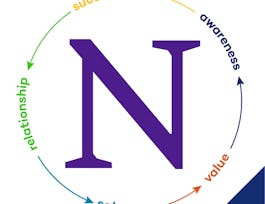This sequence of four courses will propose a multi-disciplinary approach to the study of Chinese cultural history conceived of as a succession of modes of rationality (philosophical, bureaucratic, and economic). The focus will be on the moments of paradigm shift from one mode of rationality to another. For each of these moments, cultural facts and artifacts—thought, literature, ritual—will be examined in relationship to changing social, political, and economic systems.


Religious Transformation in Early China: the Period of Division
Taught in English
Some content may not be translated
3,382 already enrolled
(35 reviews)
Details to know

Add to your LinkedIn profile
39 quizzes
See how employees at top companies are mastering in-demand skills


Earn a career certificate
Add this credential to your LinkedIn profile, resume, or CV
Share it on social media and in your performance review

There are 7 modules in this course
This module presents the relationship between the elite attack on shamanism and their promotion of a cosmology that transformed medicine and laid the foundations for both self-cultivation and a bureaucratic empire.
What's included
5 videos3 readings5 quizzes
This module introduces the three kinds of new religious community that appear from the second century on: those organized around transcendents, by the Heavenly Masters, and by the Buddhists.
What's included
8 videos8 quizzes
This module explains how Buddhist and Daoist rituals revolutionized Chinese society and individuals. It reveals the importance of orality in Buddhism, written documents in Daoism.
What's included
8 videos8 quizzes
This module explores how Buddhist and Daoist scriptures confirm the oral/aural bias of Buddhism, the written/visual bias of Daoism. We are going to learn the centrality of logic in Buddhism, of cosmology in Daoism.
What's included
6 videos2 readings6 quizzes
This module indicates the attractiveness of key Buddhist scriptures and how Chinese poetry was transformed by Buddhism. It also shows how the “public sermons” of Buddhism contrasted with the “private records of the imagination” of Daoism.
What's included
4 videos4 quizzes
This module is about how Daoist sacred geography is above all an exploration of the inner self and how mountains played a role both in imperial preference for Daoism and in the Buddhist “conquest” of China.
What's included
6 videos1 reading6 quizzes
This module illustrates why popular religion continued to thrive in spite of elite attacks on it, and how Buddhism and Daoism dealt with widespread fear of the spirits of the dead.
What's included
2 videos2 quizzes
Instructor

Offered by
Recommended if you're interested in History

The Chinese University of Hong Kong

Northwestern University

The Chinese University of Hong Kong

Ludwig-Maximilians-Universität München (LMU)
Why people choose Coursera for their career




Learner reviews
Showing 3 of 35
35 reviews
- 5 stars
82.85%
- 4 stars
17.14%
- 3 stars
0%
- 2 stars
0%
- 1 star
0%

Open new doors with Coursera Plus
Unlimited access to 7,000+ world-class courses, hands-on projects, and job-ready certificate programs - all included in your subscription
Advance your career with an online degree
Earn a degree from world-class universities - 100% online
Join over 3,400 global companies that choose Coursera for Business
Upskill your employees to excel in the digital economy
Frequently asked questions
Access to lectures and assignments depends on your type of enrollment. If you take a course in audit mode, you will be able to see most course materials for free. To access graded assignments and to earn a Certificate, you will need to purchase the Certificate experience, during or after your audit. If you don't see the audit option:
The course may not offer an audit option. You can try a Free Trial instead, or apply for Financial Aid.
The course may offer 'Full Course, No Certificate' instead. This option lets you see all course materials, submit required assessments, and get a final grade. This also means that you will not be able to purchase a Certificate experience.
When you purchase a Certificate you get access to all course materials, including graded assignments. Upon completing the course, your electronic Certificate will be added to your Accomplishments page - from there, you can print your Certificate or add it to your LinkedIn profile. If you only want to read and view the course content, you can audit the course for free.
You will be eligible for a full refund until two weeks after your payment date, or (for courses that have just launched) until two weeks after the first session of the course begins, whichever is later. You cannot receive a refund once you’ve earned a Course Certificate, even if you complete the course within the two-week refund period. See our full refund policy.


